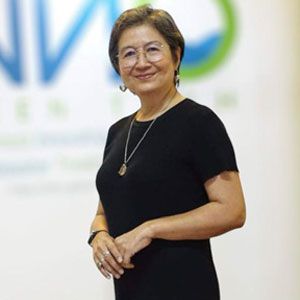
Innovative solutions are crucial for addressing environmental challenges in wastewater management. Effective systems not only enhance operational efficiency but also contribute to sustainability. One such breakthrough is BioCircuit, developed by Inno Green Tech, which was established by Asst. Prof. Dr Chontisa Sukkasem. This cutting-edge technology employs bioelectrochemical treatment, merging biological processes with electrochemical reactions. By utilizing microorganisms, BioCircuit effectively degrades organic pollutants and transforms toxic inorganic materials into easily removable solids or gases. As a leader in wastewater treatment solutions, Inno Green Tech showcases significant advancements in bioelectrochemical systems, demonstrating a steadfast commitment to environmental sustainability amid development challenges.
Bioelectrochemical treatment uses Bioelectrochemical Systems (BES) with two electrodes, an anode and a cathode. Electrogenic bacteria at the anode oxidize organic matter in wastewater, releasing electrons, protons, and carbon dioxide. These electrons travel through an external circuit to the cathode, producing water or hydrogen peroxide.
Microbial Fuel Cells (MFC) generate electricity during wastewater treatment, functioning under anaerobic conditions. This enables efficient handling of high organic loads while minimizing energy consumption. By treating wastewater and generating electricity, BioCircuit exemplifies sustainable management, employing passive aeration and resource recovery to support a circular economy.
Advantages Over Traditional Methods
BioCircuit distinguishes itself from traditional wastewater treatment methods through enhanced efficiency, cost-effectiveness, and reduced environmental impact. One key advantage is its ability to handle higher organic loads, processing wastewater with Chemical Oxygen Demand (COD) levels significantly beyond conventional capabilities. Additionally, BioCircuit generates substantially lower secondary biomass, around 5.1 percent of the Biochemical Oxygen Demand (BOD) removed, compared to higher percentages from anaerobic
digesters and aerobic technologies. This leads to less waste needing further treatment. “The energy efficiency of BioCircuit is critical, minimizing consumption through passive aeration and generating electricity, resulting in lower operational costs and promoting sustainability by significantly reducing greenhouse gas emissions,” says Asst. Prof. Dr Chontisa Founder and CEO, Inno Green Tech.
BioCircuit's versatility is evident through its installations across five provinces and various industries, including rubber processing and noodle manufacturing.
Each industry presents unique wastewater challenges, which BioCircuit effectively addresses. For example, noodle manufacturing generates wastewater rich in starches and proteins, requiring high COD processing. The system can customize microbial populations for optimal degradation of specific contaminants. Additionally, its design enables simultaneous sulfate and nutrient reduction efficiently managing nutrigenous waste and reducing the need for further treatment steps in wastewater management.
Major Challenges Encountered
The development of BioCircuit by Inno Green Tech faced numerous challenges, starting with the complex composition of wastewater across various industries. Each sector generates wastewater with distinct characteristics, often containing high levels of organic matter, nutrients, and toxins. This variability made it difficult to create a universal treatment solution. In response, Inno Green Tech designed BioCircuit to be flexible, allowing for customization based on specific wastewater characteristics. This adaptability enabled the system to optimize microbial communities and operational parameters for effective treatment across diverse conditions.
Integrating BioCircuit into existing wastewater infrastructures posed additional challenges, particularly when retrofitting older facilities. To address this, Inno Green Tech partnered with local industries to understand their systems, developing tailored integration plans that enhanced treatment efficacy without disrupting operations. Pilot projects were implemented to test BioCircuit in real-world settings, leading to iterative improvements and fostering trust among stakeholders. Navigating the regulatory landscape was another significant hurdle. Varying standards across provinces required BioCircuit to meet multiple compliance requirements. Inno Green Tech engaged early with regulatory bodies, allowing for adjustments based on feedback and smoothing the path to approval.
Inno Green Tech pioneers sustainable wastewater solutions, blending innovation and adaptability to shape a greener, cleaner future
Community engagement and public education were also crucial for gaining acceptance, while robust monitoring systems ensured BioCircuit’s adaptability under changing operational conditions. The journey of developing and implementing BioCircuit was fraught with challenges, from the complexity of wastewater composition to community acceptance. However, through strategic customization, collaborative integration efforts, proactive regulatory engagement, community education, and robust operational monitoring, Inno Green Tech successfully navigated these obstacles. The result is a transformative wastewater treatment technology that not only addresses the immediate needs of industries but also promotes a broader acceptance of advanced treatment methods within the communities they serve.
Positioning Inno Green Tech as an Industry Leader
As Inno Green Tech advances sustainable wastewater treatments like BioCircuit, public education is essential to its success. By raising awareness about responsible wastewater management, the company fosters an informed community that supports sustainable practices. Educational initiatives influence policy, encourage community engagement, and reduce resistance to change. Inno Green Tech aims to create a culture that values water as a precious resource, ensuring long-term sustainability in wastewater management and positioning itself as an industry leader in sustainable solutions.
In conclusion, the development and implementation of BioCircuit by Inno Green Tech showcase the company's commitment to innovation, adaptability, and sustainability in wastewater treatment. By overcoming challenges related to wastewater composition, infrastructure integration, regulatory compliance, and public perception, BioCircuit has proven itself as an effective and versatile solution. Inno Green Tech’s forward-thinking approach positions the company as a leader in advancing sustainable wastewater management practices.
Asst. Prof. Dr Chontisa Sukkasem, Founder & CEO, Inno Green Tech
Asst. Prof. Dr Chontisa Sukkasem, founder and CEO of Inno Green Tech Co., Ltd., developed BioCircuit, an innovative wastewater treatment system using accessible materials. With over 20 years of experience and a PhD in Biotechnology, she has successfully implemented BioCircuit across various industries in Thailand, focusing on sustainability and efficiency.
We use cookies to ensure you get the best experience on our website. Read more...